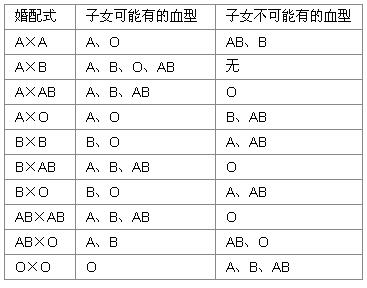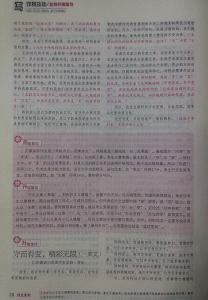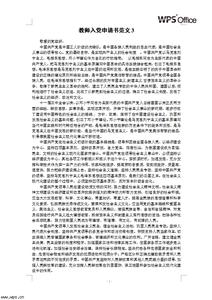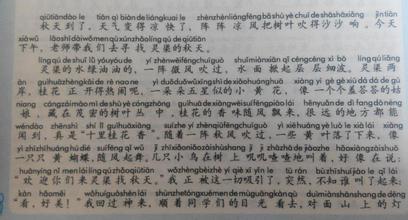文学作品的语言,除了要求清晰流畅等等以外,还要求优美。下面是小编带来的一篇优美的英语文章,欢迎阅读!
一篇优美的英语文章1Attaining Moral Perfection
第六部分 获取完美品德
In the various enumerations of the moral virtues I had met with in my reading, I found thecatalogue more or less numerous,as different writers included more or fewer ideas under thesame name. I proposed to myself, for the sake of clearness, to use rather more names,withfewer ideas annexed to each, than a few names with more ideas; and I included under thirteennames of virtues all that at that time occurred to me as necessary or desirable, and annexedto each a short precept, which fully expressed the extent I gave to its meaning.
在阅读的过程中,我发现在列举道德品质时,分类繁多,不同的作者对同一个类别的解释多少有些出入,释义有深有浅。为了明确起见,我主张自己多设定几个名称类别,每个名称包含更加简明的含义,而不要分类少而释义多。我提出了十三种品德,这是当时我认为要么必需要么合意的全部品德的名称,每个名称底下我附了一些简单的戒律,充分说明我认为该词应有的含义。
These names of virtues, with their precepts, were:
这些品德的名称和相应的戒律如下:
1.TEMPERANCE. Eat not to dullness; drink not to elevation.
一、节制。食不过饱;酒不过量。
2.SILENCE. Speak not but what may benefit others or yourself; avoid trifling conversation.
二、沉默寡言。言必于人于己有益;避免无益的谈话。
3.ORDER. Let all your things have their places; let each part of your business have its time.
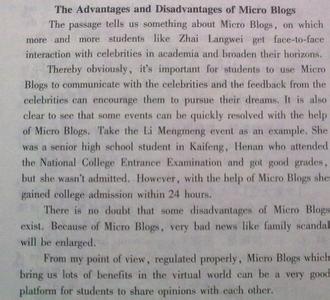
三、生活有秩序。每一样东西应有安放的位置;每件事务当安排好相应的时间。
4.RESOLUTION. Resolve to perform what you ought; perform without fail what you resolve.
四、决心。当做必做;一旦决定,不可半途而废。
5.FRUGALITY. Make no expense but to do good to others or yourself; i.e., waste nothing.
五、俭朴。花钱必须于人或于己有益;比如,不要浪费一分一厘。
6.INDUSTRY. Lose no time; be always employed in something useful; cut off all unnecessaryactions.
六、勤勉。不浪费时间;每时每刻做有用的事,终止一切不必要的行动。
7.SINCERITY. Use no hurtful deceit; think innocently and justly, and, if you speak, speakaccordingly.
七、诚恳。不恶意骗人;思想要纯洁公正,说话也要如此。
8.JUSTICE. Wrong none by doing injuries, or omitting the benefits that are your duty.
八、公正。不做损人之事,不要忘记履行对人有益而且是你应尽的义务。
9.MODERATION. Avoid extremes; forbear resenting injuries so much as you think theydeserve.
九、中庸适度。避免极端;如果对你造成的伤害是应该的,当克制怒火。
10.CLEANLINESS. Tolerate no uncleanliness in body, clothes, or habitation.
十、清洁。身体、衣服和住所力求清洁。
11.TRANQUILLITY. Be not disturbed at trifles, or at accidents common or unavoidable.
十一、镇静。勿因小事或不可避免的事故而惊慌失措。
12.CHASTITY. Rarely use venery but for health or offspring, never to dullness, weakness, orthe injury of your own or another's peace or reputation.
十二、贞节。除了为了健康或生育后代起见,节制房事,以免伤害身体或损害你自己或他人的安宁或名誉。
13.HUMILITY. Imitate Jesus and Socrates.
十三、谦虚。仿效耶稣和苏格拉底。
My intention being to acquire the habitude of all these virtues, I judged it would be well not todistract my attention by attempting the whole at once, but to fix it on one of them at a time;and, when I should be master of that, then to proceed to another, and so on, till I should havegone through the thirteen; and, as the previous acquisition of some might facilitate theacquisition of certain others, I arranged them with that view, as they stand above.Temperance first,as it tends to procure that coolness and clearness of head, which is sonecessary where constant vigilance was to be kept up, and guard maintained against theunremitting attraction of ancient habits,and the force of perpetual temptations. This beingacquired and established, Silence would be more easy; and my desire being to gain knowledgeat the same time that I improved in virtue, and considering that in conversation it wasobtained rather by the use of the ears than of the tongue, and therefore wishing to break ahabit I was getting into of prattling, punning,and joking,which only made me acceptable totrifling company, I gave Silence the second place. This and the next, Order, I expected wouldallow me more time for attending to my project and my studies. Resolution, once becomehabitual, would keep me firm in my endeavors to obtain all the subsequent virtues; Frugalityand Industry freeing me from my remaining debt, and producing affluence and independence,would make more easy the practice of Sincerity and Justice, etc., etc. Conceiving then, that,agreeably to the advice of Pythagoras in his Golden Verses, daily examination would benecessary.
既然我的目的是将这些美德变成一种习惯,我认为最好不要同时尝试所有项目,以致分散注意力,最好是一段时间内集中精力执行其中的一项。当我掌握了一个美德后,接着继续实践下一个,如此类推,直到我做到十三项为止。因为先获得的某些美德可能有利于其他美德的养成,依据这个想法,我就按照上面的次序把它们进行了排列。我把节制放在第一,因为它有助于使人头脑冷静,思维清晰,为了经常保持警惕,抵抗旧习惯不断地吸引以及无穷无尽的诱惑的侵扰,这种冷静的头脑和清晰的思维是非常必要的。在获得和养成了这一美德以后,沉默寡言就容易多了。在提高我品德的同时我还想增进知识,我认为在谈话中用耳朵比用嘴更能增长知识,因此我想打破当时我正在形成的喋喋不休、爱说俏皮话、爱戏谑的习惯,这种习惯只会让我结交到一些轻浮的朋友,因此我把沉默寡言放在第二位。我想沉默寡言和下一条生活有秩序的美德会使我有更多时间致力于我的计划和学习。意志坚决一旦成为习惯,将会使我更坚决地努力获得其余的美德。俭朴和勤勉能使我还清剩下的债款,带给我财富和独立,会使诚恳和公正两项美德的实践更加容易,如此等等。接着,按照毕达哥拉斯在《金诗篇》里提出的建议,我认为每日必须进行自我检查。
一篇优美的英语文章2The Little Prince Visits the Conceited Man
第十一课 第一部分 小王子拜访爱慕虚荣的人
The second planet was inhabited by a conceited man.
第二颗行星上住着一个爱慕虚荣的人。
"Ah! Ah! I am about to receive a visit from an admirer!"
"啊!啊!我马上要接待一位仰慕者的拜访了! "
he exclaimed from afar, when he first saw the little prince coming.
这个自命不凡的人一看到小王子朝他走来,远远地就叫起来。
For, to conceited men, all other men are admirers.
在一个虚荣自负的人眼里,其他所有人都成了他的崇拜者。
"Good morning," said the little prince. "That is a queer hat you are wearing."
"早上好! "小王子说,"你戴的帽子很奇怪。"
"It is a hat for salutes," the conceited man replied. "It is to raise in salute when people acclaim me.
"这是为了向人们致意用的。"爱慕虚荣的人回答道,"当人们为我喝彩时,我就拿起帽子向他们致意。
Unfortunately, nobody at all ever passes this way."
不幸的是,从来没有一个人从这里经过。"
"Yes?" said the little prince, who did not understand what the conceited man was talking about.
"是吗? "小王子说,他不太明白这个人在说些什么。
"Clap your hands, one against the other," the conceited man now directed him.
"拍拍你的手,用一只手去拍另一只。"爱慕虚荣的人开始指导他。
The little prince clapped his hands. T
小王子就拍起巴掌来,
he conceited man raised his hat in a modest salute.
那人便举起他的帽子,谦虚地行礼。
"This is more entertaining than the visit to the king,"the little prince said to himself.
"这比拜访国王有意思多了。"小王子自言自语地说。
And he began again to clap his hands, one against the other.
之后他又开始拍手,用一只手拍打另一只。
The conceited man again raised his hat in salute.
爱慕虚荣的人再次向他脱帽回礼。
After five minutes of this exercise the little prince grew tired of the game's monotony.
小王子这样做了五分钟'之后对这种单调乏味的把戏有点厌烦了。
"And what should one do to make the hat come down?" he asked.
"要让你的帽子掉下来,该怎么做呢? "他问道。
But the conceited man did not hear him.
可这回那个虚荣自负的人听不进他的话。
Conceited people never hear anything but praise.
因为凡是爱慕虚荣的人只听得到赞美之辞。
"Do you really admire me very much?" he demanded of the little prince.
"你真的非常崇拜我吗? "他问小王子。
"What does that mean-'admire'?"
"你说的'崇拜'是什么意思? "
"To admire mean that you regard me as the handsomest, the best-dressed, the richest, and the most intelligent man on this planet."
"崇拜就是说你认为我是这个星球上最帅气、着装最美、最富有、最智慧的人。"
"But you are the only man on your planet!"
"但你是你的星球上唯一的人呀! "
"Do me this kindness. Admire me just the same."
"行行好吧,请你还是一样地崇拜我吧! "
"I admire you," said the little prince, shrugging his shoulders slightly,
"我崇拜你。"小王子轻轻地耸耸肩,说道,
"but what is there in that to interest you so much?"
"但是为什么这让你如此感兴趣呢? "
And the little prince went away.
于是小王子走开了。
"The grown-ups are certainly very odd,"he said to himself, as he continued on his journey.
"这些大人真的非常古怪。"他对自己说,又开始继续他的旅行。
 爱华网
爱华网
